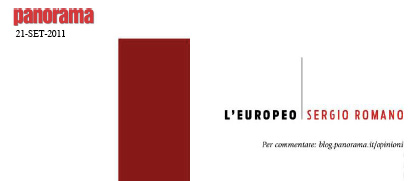
Turkey has placed itself in the middle of the games in the Middle East and now we Europeans need it.
The Turkish prime Minister wants a public apology from Israel for the killing of nine compatriots on board of a ship that tried to break the blockade of the Israeli navy in order to docking in Gaza. Israel refuses and Turkey orders to the Israeli ambassador to return home. The government of Jerusalem persists in its refusal and Recep Tayyip Erdogan flies to Cairo a few hours after an angry demonstration against the Israeli embassy occurred in the Egyptian capital, the first step in a journey that would allow him to visit other capitals of the revolt, from Tunis to Tripoli. During this trip the Turkish Prime Minister brought with him some ministers, has signed agreements and pronounced speeches. And he has offered to the visited countries the image-model of a state that can be simultaneously democratic, Muslim and economically dynamic.
Erdogan’s meeting with the military government of Cairo shows that the nine deaths of the Turkish ship and the five Egyptian border guard skilled during an Israeli raid in the area of Aqaba could deprive Israel of two friends, the Egyptian and Turkish one, in fact, which mostly ensured, along with the alliance with the United States, its security in the region. While Europe and America are concerned with Muammar Gaddafi (a marginal issue that altogether would be possible to address and resolve in other ways), the political map of the Middle East is rapidly changing. And at the centre of these changes there is a quite different Turkey in comparison with that we have known for several decades: a new power, but an heir of the Ottoman Empire and of its role in the region. Its return to the Balkans, to the Caucasus and to the Middle East is not a recent phenomenon. But for a long time the policy of Erdogan and his brilliant foreign minister, Ahmet Davutoglu, was observed absent-mindedly by a West convinced of own superiority and persuaded that Turkey had no other aspiration except for that one to be accepted in its most prestigious clubs.
Anyone who wants to know what are the broad outlines of the new Turkish diplomacy can read a little book appeared, a few months ago, by the Trento editions of Vox Populi. The title is: The Turkish strategic depth in the thought of Ahmet Davutoglu and contains, among others, a chapter of the same foreign minister mainly dedicated to the Balkans and the Caucasus. In these regions the end of the Cold War has caused crisis, conflicts, separations, and a dense network of oil projects that Turkey cannot ignore, especially where exist “Muslim societies present from the Ottoman era.”
The same considerations are true for the Middle East, where Turkey is much more credible and influential as it defends the Palestinian cause and as it is in line with the resentment of the Arab- Muslim societies for Israeli politics. These are the reasons why Turkey has cultivated its relations with Islamic countries in the region and its relations with Israel, in recent times, have been gradually getting worse. In recent months, the cloth woven by Erdogan and Davutoglu was torn in Syria, where Bashar al- Assad repressed popular demonstrations against the regime without giving heed to their advice. But the ouster of President Hosni Mubarak and the prospect of a less linked Egypt to Israel has provided opportunities that Erdogan, with his journey, was quick to seize. For many years we thought that Turkey needed Europe and that it could keep Turkey in the waiting room. Today we should ask ourselves whether it is Europe that needs Turkey.
21 September 2011 – Panorama – Sergio Romano

















